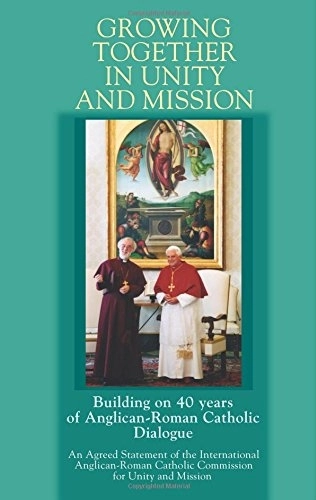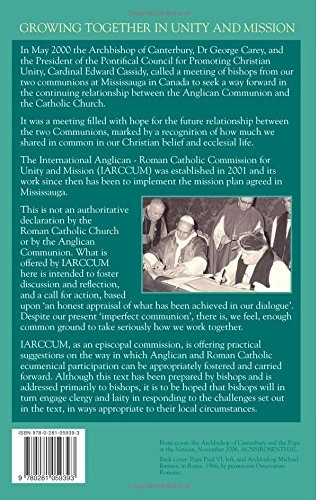- Français
- |
- Booklist
- |
- Week of Prayer
- |
- Links
- Areopagus - a forum for dialogue
- Academic journals
- Acronyms
- Bible tools
- Bibliographies
- Booksellers and publishers
- Churches
- Canadian church headquarters
- Directory of Saskatchewan churches
- Retreat centres
- Saskatchewan church and non-profit agencies
- Ecumenism.net Denominational links
- Anabaptist & Mennonite
- Anglican
- Baptist
- Evangelical
- Independent episcopal
- Lutheran
- Methodist, Wesleyan, and Holiness
- Miscellaneous
- Mormon
- Orthodox (Eastern & Oriental)
- Para-church ministries
- Pentecostal / charismatic
- Presbyterian & Reformed
- Quaker (Society of Friends)
- Roman & Eastern Catholic
- United and uniting
- Documents of Ecumenical Interest
- Ecumenical agencies
- Ecumenical Booklist
- Ecumenical Dialogues
- Glossary
- Human rights
- Inter-religious links
- Justice & peace
- Lectionaries
- Religious news services
- Resource pages
- Search Ecumenism.Net
- |
- Documents
- Ancient & Medieval texts
- Ecumenical Dialogues
- Interreligious
- Anabaptist & Mennonite
- Anglican
- Evangelical
- Lutheran
- Orthodox
- Reformed & Presbyterian
- Roman & Eastern Catholic
- United & Uniting
- Miscellaneous churches
- Canadian Council of Churches (CCC)
- Conference of European Churches (CEC)
- Interchurch Families International Network (IFIN)
- National Council of Churches in Australia (NCCA)
- Lausanne Committee for World Evangelism (LCWE)
- World Council of Churches (WCC)
- Other ecumenical documents
Church traditions
Documents from ecumenical agencies
- |
- Dialogues
- Adventist-Reformed
- African Instituted Churches-Reformed
- Anglican-Lutheran
- Anglican-Orthodox
- Anglican-Reformed
- Anglican-Roman Catholic
- Anglican-United/Uniting
- Baptist-Reformed
- Disciples of Christ-Reformed
- Disciples of Christ-Roman Catholic
- Evangelical-Roman Catholic
- Lutheran-Mennonite
- Lutheran-Mennonite-Roman Catholic
- Lutheran-Reformed
- Lutheran-Roman Catholic
- Mennonite-Reformed
- Mennonite-Roman Catholic
- Methodist-Reformed
- Methodist-Roman Catholic
- Oriental Orthodox-Reformed
- Orthodox-Reformed
- Orthodox-Roman Catholic
- Pentecostal-Reformed
- Prague Consultations
- REC-WARC Consultations
- Roman Catholic-Lutheran-Reformed
- Roman Catholic-Reformed
- Roman Catholic-United Church of Canada
- |
- Quick links
- Canadian Centre for Ecumenism
- Canadian Council of Churches
- Ecumenical Shared Ministries
- Ecumenism in Canada
- Interchurch Families International Network
- International Anglican-Roman Catholic Commission for Unity and Mission
- Kairos: Canadian Ecumenical Justice Initiatives
- North American Academy of Ecumenists
- Prairie Centre for Ecumenism
- Réseau œcuménique justice et paix
- Week of Prayer for Christian Unity
- Women's Interchurch Council of Canada
- World Council of Churches
- |
- Archives
- |
- About us
Anglicans & Catholics growing together in unity & mission
— Sept. 15, 200715 sept. 2007“Ecumenism in Canada” would like to draw attention to a new agreed statement from IARCCUM. For those who do not know this acronym, it is the “International Anglican-Roman Catholic Commission on Unity and Mission.” It was established in 2000 by the Vatican and the Anglican Communion after a meeting at Mississauga to assess the ongoing dialogue between the two communions.
The agreed statement entitled “Growing Together in Unity & Mission” was released today by the Anglican Communion Office and the Vatican’s Pontifical Council for Promoting Christian Unity. The statement attempts to foster discussion and reflection on the work of the Anglican-Roman Catholic International Commission (ARCIC) over the past 40 years. However, the statement insists, “it is more than this: it is a call for action, based upon an honest appraisal of what has been achieved in our dialogue. Despite our present ‘imperfect communion’, there is, we feel, enough common ground to take seriously how we work together.” Already, as Archbishop George Carey and Pope John Paul II noted, “in many parts of the world, Anglicans and Catholics, joined in one baptism, recognise one another as brothers and sisters in Christ and give expression to this through joint prayer, common action, and joint witness.” This statement wishes to put flesh to the growing relationships between Anglicans and Roman Catholics. It offers numerous suggestions of ways that the two communities can implement the unity that has already been found through the past 40 years.
This new report is called an “agreed statement” which places it in the same category as the work of ARCIC. One important distinction is that IARCCUM has a very practical purpose, while ARCIC has focussed on resolving the theological issues that divide the two communions. Another important distinction is that IARCCUM is an “episcopal commission,” that is, its members are primarily bishops. Like other agreed statements, this document has not yet been formally approved by the two communions. It is sent to the churches for their study and consideration.
The practical focus and the episcopal character of the IARCCUM process means that the suggestions offered by this statement are frequently directed towards the bishops and other clergy of the two communions. The report calls for tangible means of expressing the unity given in Christ, but then it makes practical suggestions towards expressing this unity.
If the document’s title sounds familiar to you, then you have been paying attention. The document was leaked last spring. Today’s public release of the document includes the definitive text along with two commentaries, by Bishop Paul Richardson of Newcastle and Bishop Bernard Longley of Westminster. The commentaries are as interesting as the document itself. There is also a further text that was not released today. One of the Catholic consultants, Paul McPartlan, gave a preview of the document last January at the US’s National Workshop on Christian Unity. McPartlan’s paper has been published in “Ecumenical Trends.”
“Ecumenism in Canada” has been given permission to post the IARCCUM document. Thus, you will find the texts here in a few days.

 Permanent link: ecumenism.net/?p=348
Permanent link: ecumenism.net/?p=348
Categories: Dialogue, Documents • In this article: Anglican, Catholic, Christian unity, dialogue, ecumenism, IARCCUM, statements

 Lien permanente : ecumenism.net/?p=348
Lien permanente : ecumenism.net/?p=348
Catégorie : Dialogue, Documents • Dans cet article : Anglican, Catholic, Christian unity, dialogue, ecumenism, IARCCUM, statements


